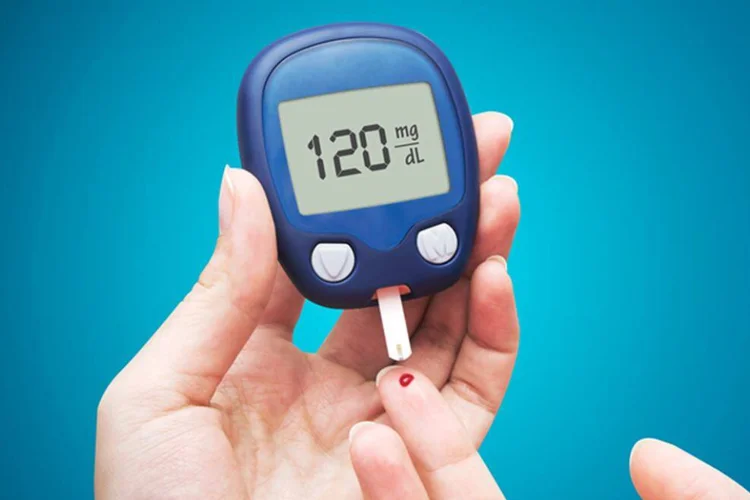What Is Dulaglutide?
Dulaglutide (brand name Trulicity®) is a once-weekly injectable medication
for type
2 diabetes that can help improve blood sugar control and may
also support weight
loss. It belongs to the GLP-1 receptor agonist class
of medications, which work by mimicking a natural hormone that regulates
blood sugar and appetite.
The weekly dosing schedule makes dulaglutide a convenient option compared to
daily injections. It may be suitable for adults who need additional
help managing their blood sugar levels alongside diet and exercise.

Dulaglutide Mechanism of Action: How Does It Work?
Dulaglutide works by helping your body manage blood sugar levels and reduce appetite in several ways:
- Stimulates insulin release when blood glucose levels are elevated, which helps reduce post-meal sugar spikes.
- Suppresses glucagon secretion, a hormone that increases blood sugar by signalling the liver to release stored glucose.
- Slows gastric emptying, meaning food stays in the stomach longer, which can reduce appetite and lead to more stable blood sugar levels.
- Activates GLP-1 receptors in the brain, which helps decrease hunger and overall food intake.
Through these combined actions, dulaglutide helps keep blood sugar levels within a healthy range and may also support modest weight loss when used together with healthy eating and lifestyle changes.
Dulaglutide vs Other GLP-1 Medications
Dulaglutide belongs to a group of medications called GLP-1 receptor agonists, which
are used to manage type 2 diabetes and, in some cases, support weight loss.
Although these medicines work in similar ways to help control blood sugar and
appetite, they differ in how often they are taken, how they are administered, and
what conditions they are approved to treat.
| Medication | Receptor Targets | Dosing Frequency and Route | Used For |
|---|---|---|---|
| Dulaglutide (Trulicity) | GLP-1 only | Weekly injection (subcutaneous) | Type 2 diabetes |
| Liraglutide (Victoza® / Saxenda®) | GLP-1 only | Daily injection (subcutaneous) | Type 2 diabetes (Victoza), weight management (Saxenda) |
| Semaglutide (Ozempic® / Wegovy® / Rybelsus®) | GLP-1 only | Weekly injection (subcutaneous) | Type 2 diabetes (Ozempic), weight management (Wegovy) |
| Tirzepatide (Mounjaro®) | GLP-1 + GIP | Weekly injection (subcutaneous) | Type 2 diabetes, weight management |
Who Can Benefit From Dulaglutide?

Dulaglutide may be appropriate for adults with type 2 diabetes who need additional support in managing their blood sugar levels, particularly those who:
- Are not achieving their blood sugar targets with oral medications alone.
- Prefer a once-weekly injection instead of taking tablets daily or using multiple injections.
- Have heart-related risk factors or existing cardiovascular disease, as some studies suggest dulaglutide may help reduce the risk of major cardiovascular events such as heart attack or stroke.
Potential Dulaglutide Side Effects
Like all medications, dulaglutide may cause side effects, particularly during the early stages of treatment. Commonly reported side effects include:
- Gastrointestinal symptoms such as nausea, vomiting, diarrhoea, abdominal discomfort, or bloating.
- Fatigue or tiredness.
- Injection site reactions.
- Increase in heart rate.
These effects are usually mild and tend to improve as your body adjusts to the medication. However, you should contact your doctor promptly if you experience any of the following:
- Ongoing vomiting or severe abdominal pain.
- Possible signs of pancreatitis, such as intense upper abdominal pain and nausea.
- Symptoms that may suggest gallbladder problems, including pain under the ribs, fever, or yellowing of the skin or eyes (jaundice).
Disclaimer: This is not a complete list of side effects. Always consult your doctor if you notice anything unusual or if you have concerns during treatment.
Who Should Avoid Dulaglutide?
Dulaglutide is not suitable for everyone. It is generally avoided in individuals with:
- Type 1 diabetes or diabetic ketoacidosis, as dulaglutide relies on the body’s ability to produce insulin, which is significantly reduced or absent in these conditions.
- A personal or family history of medullary thyroid carcinoma or multiple endocrine neoplasia syndrome type 2, due to potential thyroid tumour risks.
- Severe gastrointestinal conditions, such as gastroparesis, since dulaglutide slows stomach emptying and may worsen digestive symptoms.
Your doctor will review your overall health and medical history to determine whether dulaglutide is suitable for your condition.

Dulaglutide Availability in Singapore
In Singapore, dulaglutide is available by prescription only and
cannot be purchased over the counter. It must be prescribed by a licensed healthcare
provider after a medical evaluation.
You may consult a
GP or an endocrinologist to discuss whether dulaglutide is appropriate for
you. As with all prescription medications, regular follow-up is important to monitor
effectiveness and adjust treatment as necessary.
Why Choose ATA Medical?








Making a Difference Together
At ATA Medical, we strive to make a meaningful impact on every patient's health. With over 150,000 patients served, we are dedicated to fostering trust and enhancing well-being across our community.
Patients
Health Screening Tests
Corporate Screenings
Delivering Care Patients Appreciate
What to Expect
FAST RESULTS
We strive to deliver your results within 7 working days.
MINIMUM WAITING TIME
Our patient-oriented processes ensure your waiting time is kept to a minimum.
Friendly Service
Service is a top priority for us at ATA Medical.
Email Us at camden@atamed.sg
for More Information.
Book Your Dulaglutide Treatment With Us at 88838892.

